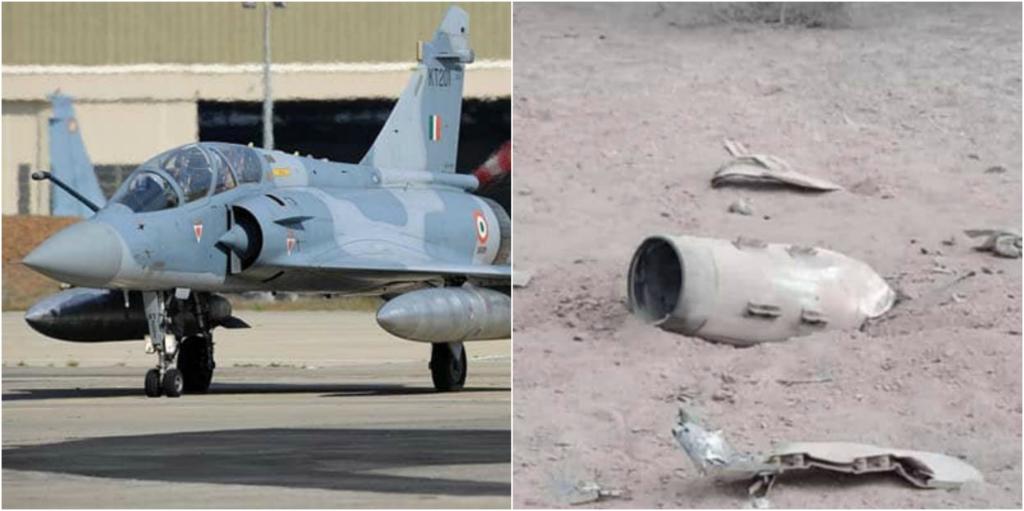According to unconfirmed reports, Indian Air Force has struck again in Pakistan. According to Pakistani twitter handles and unconfirmed media reports, IAF hit Fort Abbbas in Bahawalnagar district.
https://twitter.com/Iyervval/status/1102522962119397377?s=19
BREAKING: Unconfirmed reports from Pakistani sources saying Indian Air Force has dropped bombs near Fort Abbas, Pakistan.
— FJ (@Natsecjeff) March 4, 2019
BREAKING: there are some unconfirmed reports that Indian troops fire shells in Toba Qalandar Shah Chak 242 and 243 in Bahawalnagar/Fort Abbas, a city in South Punjab today. However, no casualty reported so far.#NobelPeacePrize @peaceforchange pic.twitter.com/9roUo8Uptk
— Sarfraz Ali (@ItsSarfrazAli) March 4, 2019
A few days back, to avenge the dastardly Pulwama terror attack, according to several reports, IAF jets dropped payloads at Balakot in Khyber Pakhtunkhwa province of Pakistan last night. 12 Mirage 2000 jets took part in the operation that dropped 1000 Kg bombs on terror camps across the LOC, completely destroying it, reported ANI. The IAF air strikes completely destroyed Balakot, Chakothi and Muzaffarabad’s terror launch pads across the LOC and JeM control rooms were also destroyed.
Balakot is 50 KM away from PoK Muzzafarabad sector. So, basically IAF has gone inside 50 km deep and dropped bombs on Pakistani terror camps. It also means that it has attacked the Pakistani military directly. It is India’s deepest strike against Pakistan since 1971, and IAF jets returned without any casualties, that’s a very big thing. It’s a super successful mission.
According to Ankit Panda, the recent airstrikes by the IAF is a notable case of a conventional strike by one nuclear power on another. Others include the 1969 Zhenbao Island crisis between the PRC and the USSR and the 1999 India-Pakistan Kargil War. Neither saw conventional air power used against a nuclear-armed adversary’s territory.
According to a Firstpost report, Balakot is one of the Jaish-e-Muhammad’s oldest and best-known training camps, which has found mention in many past criminal cases in India and abroad. Balakot is of great significance for Jihadists. Ayesha Jalal in her book “Partisans of Allah” described Balakot as the epicenter of Jihad in South Asia.
She further writes, “Blanketed by green, terraced fields and thick, dark forests, this beautiful town is situated about eighteen miles from the city of Mansehra in the North West Frontier Province (NWFP) of Pakistan. Situated on the banks of the river Kunhar, it serves as a gateway to the picturesque Kaghan Valley, which is bounded on the east and the south by Kashmir. It is also a point of entry into the history of jihad, struggle in the way of Allah, in the subcontinent”
“Balakot’s association with the idea and practice of jihad in South Asia was reinforced in the 1990s, when militant groups set up training camps in its environs to prepare for their campaign against the Indian security forces stationed in.. Kashmir.”
There has been news of activities conducted by JeM in Balakot from 2001 onwards.
According to senior journalist Aditya Raj Kaul, Maulana Masood Azhar used to spend a lot of time in Balakot around 2001 which later stopped. Lately the Jaish-e-Muhammad camp in Syed Ahmed Shaheed in Balakot has been made operational yet again for Military grade training for Jihadi terrorists after indoctrination.
